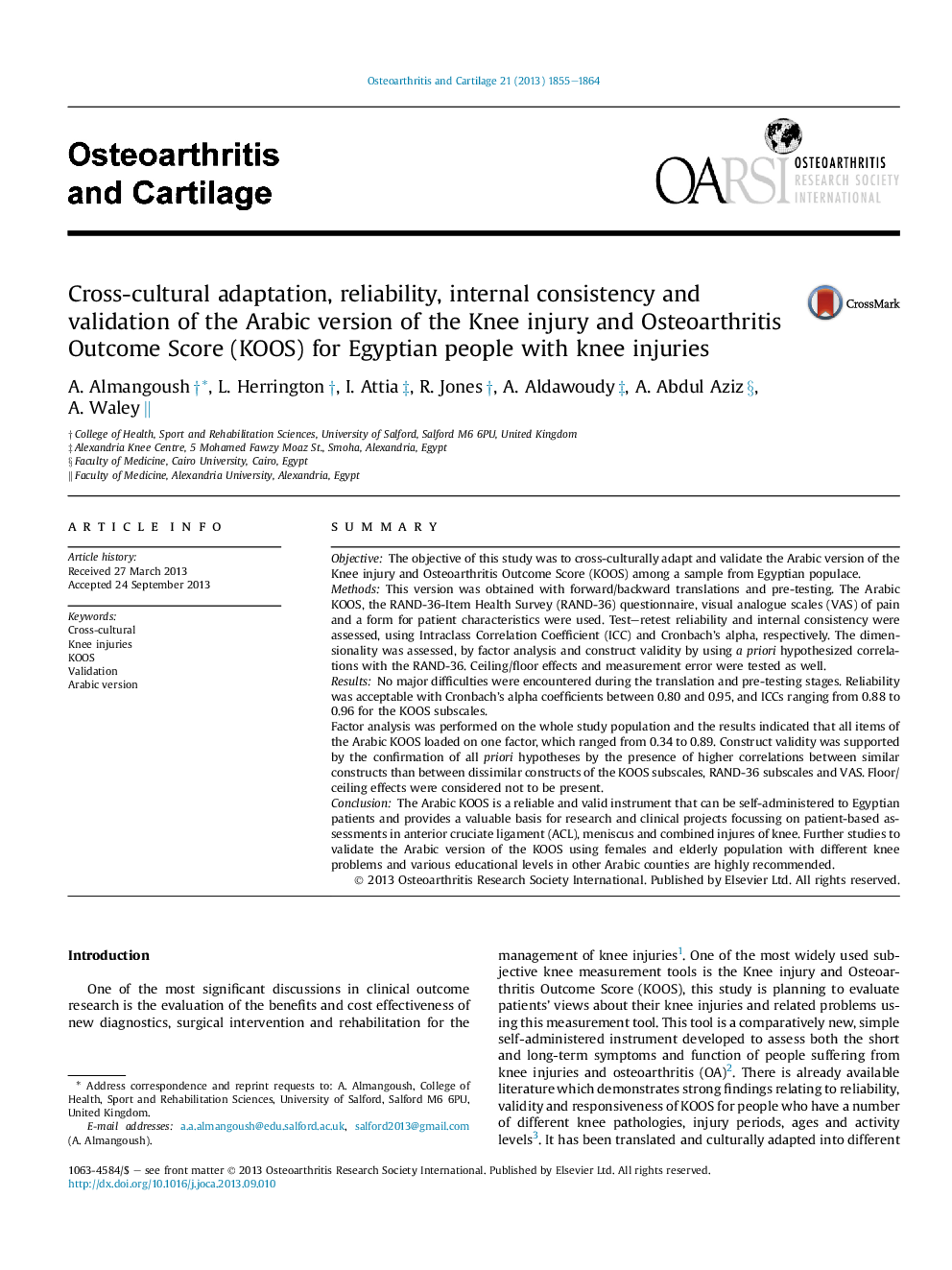| کد مقاله | کد نشریه | سال انتشار | مقاله انگلیسی | نسخه تمام متن |
|---|---|---|---|---|
| 3379447 | 1220164 | 2013 | 10 صفحه PDF | دانلود رایگان |

SummaryObjectiveThe objective of this study was to cross-culturally adapt and validate the Arabic version of the Knee injury and Osteoarthritis Outcome Score (KOOS) among a sample from Egyptian populace.MethodsThis version was obtained with forward/backward translations and pre-testing. The Arabic KOOS, the RAND-36-Item Health Survey (RAND-36) questionnaire, visual analogue scales (VAS) of pain and a form for patient characteristics were used. Test–retest reliability and internal consistency were assessed, using Intraclass Correlation Coefficient (ICC) and Cronbach's alpha, respectively. The dimensionality was assessed, by factor analysis and construct validity by using a priori hypothesized correlations with the RAND-36. Ceiling/floor effects and measurement error were tested as well.ResultsNo major difficulties were encountered during the translation and pre-testing stages. Reliability was acceptable with Cronbach's alpha coefficients between 0.80 and 0.95, and ICCs ranging from 0.88 to 0.96 for the KOOS subscales.Factor analysis was performed on the whole study population and the results indicated that all items of the Arabic KOOS loaded on one factor, which ranged from 0.34 to 0.89. Construct validity was supported by the confirmation of all priori hypotheses by the presence of higher correlations between similar constructs than between dissimilar constructs of the KOOS subscales, RAND-36 subscales and VAS. Floor/ceiling effects were considered not to be present.ConclusionThe Arabic KOOS is a reliable and valid instrument that can be self-administered to Egyptian patients and provides a valuable basis for research and clinical projects focussing on patient-based assessments in anterior cruciate ligament (ACL), meniscus and combined injures of knee. Further studies to validate the Arabic version of the KOOS using females and elderly population with different knee problems and various educational levels in other Arabic counties are highly recommended.
Journal: Osteoarthritis and Cartilage - Volume 21, Issue 12, December 2013, Pages 1855–1864